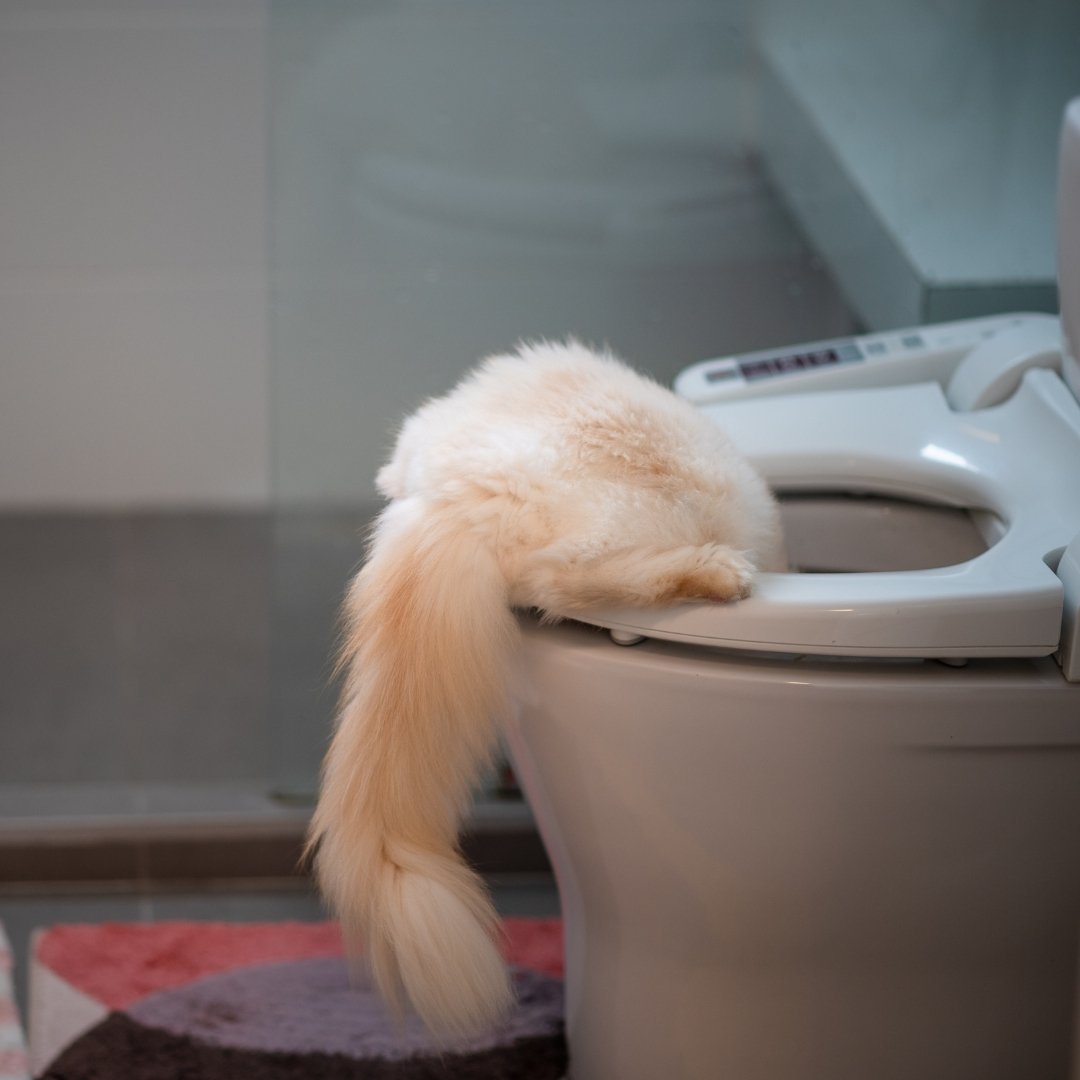Prevent Bathroom Emergencies: Never Flush Cat Poop Down Your Toilet - Expert Guidance
Prevent Bathroom Emergencies: Never Flush Cat Poop Down Your Toilet - Expert Guidance
Blog Article
Presented here down the page you will discover additional quality insight involving Don’t flush cat feces down the toilet.

Introduction
As pet cat owners, it's essential to be mindful of exactly how we throw away our feline friends' waste. While it might seem hassle-free to flush feline poop down the toilet, this practice can have destructive effects for both the atmosphere and human health.
Environmental Impact
Purging cat poop presents damaging pathogens and bloodsuckers right into the water supply, posturing a considerable threat to water ecological communities. These impurities can adversely influence marine life and concession water top quality.
Health Risks
Along with environmental issues, flushing pet cat waste can also present wellness risks to people. Cat feces may include Toxoplasma gondii, a bloodsucker that can trigger toxoplasmosis-- a potentially extreme health problem, especially for pregnant females and individuals with weakened immune systems.
Alternatives to Flushing
Thankfully, there are safer and extra responsible methods to throw away feline poop. Think about the following choices:
1. Scoop and Dispose in Trash
The most typical approach of getting rid of feline poop is to scoop it right into a biodegradable bag and toss it in the trash. Make sure to utilize a specialized litter scoop and throw away the waste immediately.
2. Use Biodegradable Litter
Choose naturally degradable feline trash made from products such as corn or wheat. These litters are eco-friendly and can be securely disposed of in the garbage.
3. Hide in the Yard
If you have a lawn, consider burying cat waste in an assigned area far from veggie gardens and water sources. Be sure to dig deep adequate to prevent contamination of groundwater.
4. Mount a Pet Waste Disposal System
Invest in an animal garbage disposal system especially developed for feline waste. These systems utilize enzymes to break down the waste, minimizing odor and ecological effect.
Final thought
Accountable animal possession extends past providing food and sanctuary-- it likewise involves proper waste management. By refraining from flushing cat poop down the toilet and selecting alternate disposal methods, we can decrease our ecological footprint and protect human health and wellness.
Why You Should Never Flush Cat Poop Down the Toilet
A rose by any other name might smell as sweet, but not all poop is created equal. Toilets, and our sewage systems, are designed for human excrement, not animal waste. It might seem like it couldn’t hurt to toss cat feces into the loo, but it’s not a good idea to flush cat poop in the toilet.
First and foremost, assuming your cat uses a litter box, any waste is going to have litter on it. And even the smallest amount of litter can wreak havoc on plumbing.
Over time, small amounts build up, filling up your septic system. Most litter sold today is clumping; it is made from a type of clay that hardens when it gets wet. Ever tried to scrape old clumps from the bottom of a litter box? You know just how cement-hard it can get!
Now imagine just a small clump of that stuck in your pipes. A simple de-clogger like Drano isn’t going to cut it. And that means it’s going to cost you big time to fix it.
Parasitic Contamination
Believe it or not, your healthy kitty may be harboring a nasty parasite. Only cats excrete Toxoplasma in their feces. Yet it rarely causes serious health issues in the cats that are infected. Most people will be fine too if infected. Only pregnant women and people with compromised immune systems are at risk. (If you’ve ever heard how women who are expecting are excused from litter cleaning duty, Toxoplasma is why.)
But other animals may have a problem if infected with the parasite. And human water treatment systems aren’t designed to handle it. As a result, the systems don’t remove the parasite before discharging wastewater into local waterways. Fish, shellfish, and other marine life — otters in particular — are susceptible to toxoplasma. If exposed, most will end up with brain damage and many will die.
Depending on the species of fish, they may end up on someone’s fish hook and, ultimately on someone’s dinner plate. If that someone has a chronic illness, they’re at risk.
Skip the Toilet Training
We know there are folks out there who like to toilet train their cats. And we give them props, it takes a lot of work. But thanks to the toxoplasma, it’s not a good idea.

As a passionate person who reads on Don’t flush cat feces down the toilet, I assumed sharing that excerpt was a good idea. Appreciated our posting? Please share it. Let someone else discover it. Kudos for your time. Come back soon.
Click Here Report this page